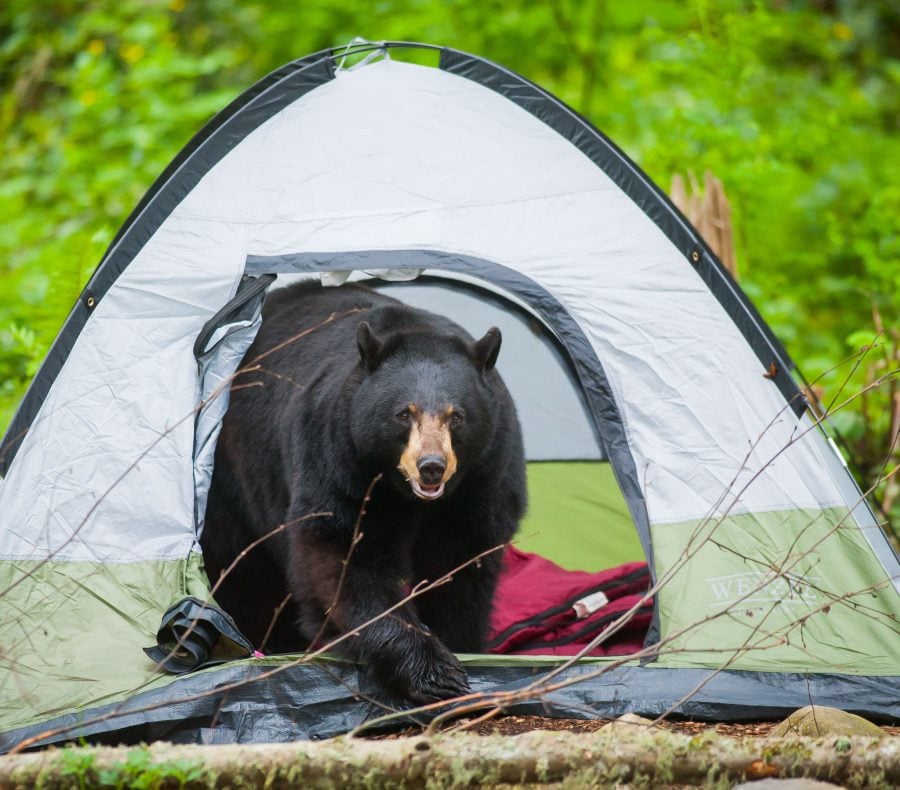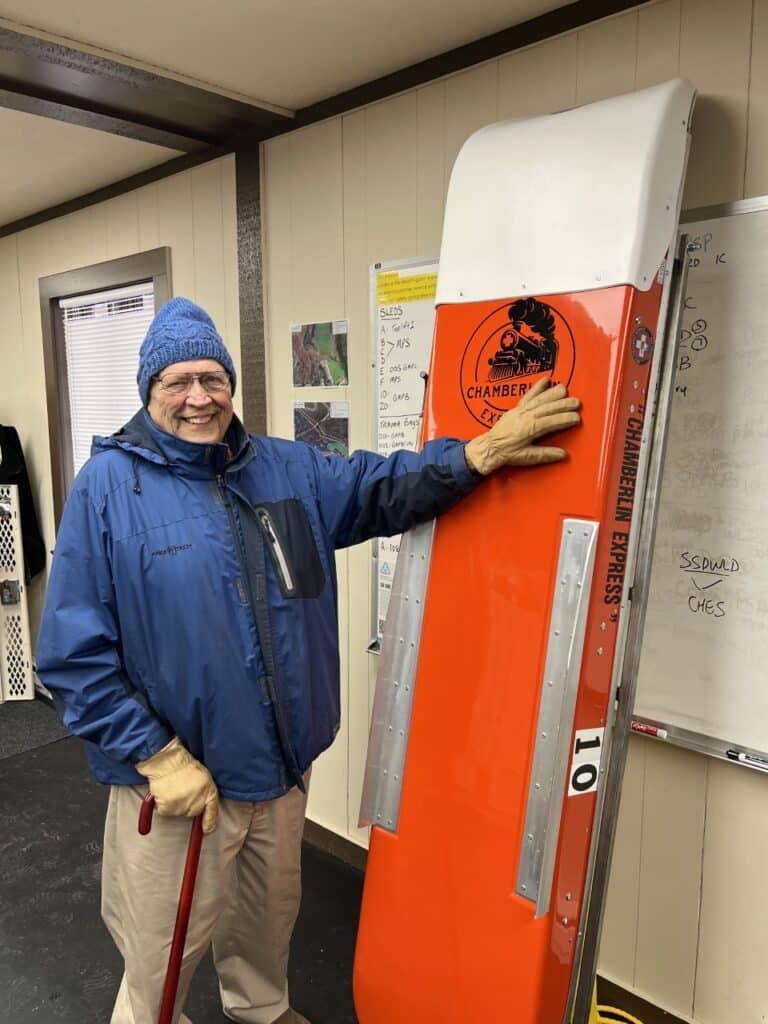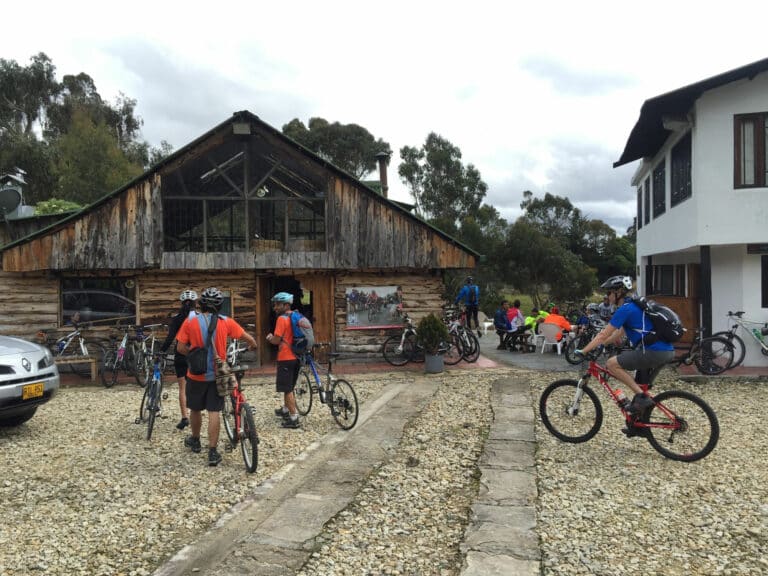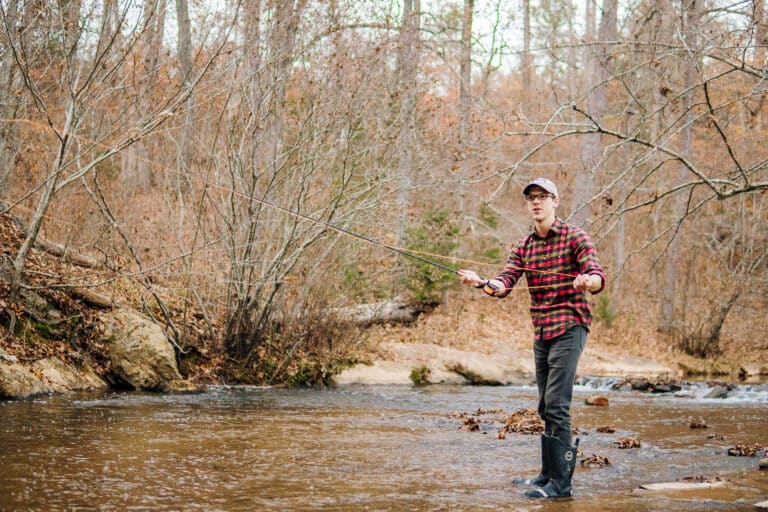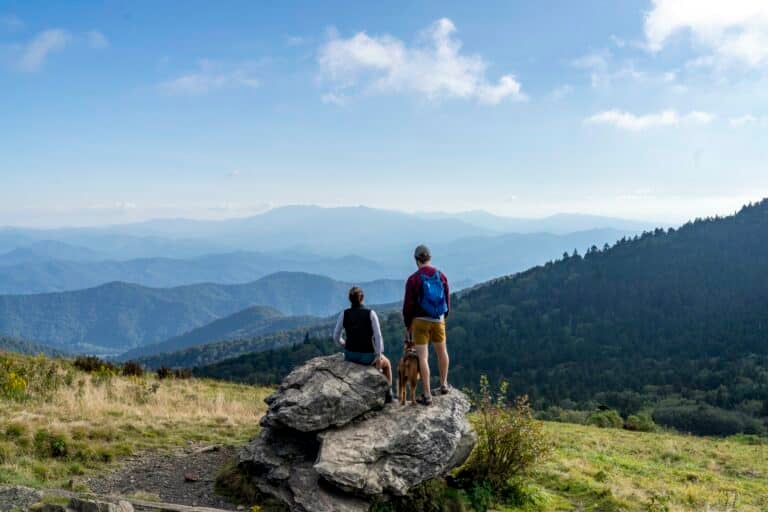All it takes is one wrong move in the woods and you could have an unwanted guest at your campsite. Here’s a list of 10 things you can do to keep your family camping trip safe and secure from potentially dangerous animals.
 1. Eliminate odors from food and supplies
1. Eliminate odors from food and supplies
Black bears roam all over the Blue Ridge Mountains with a population of 300,000 in the U.S. alone, making them a common concern amongst campers. Many established campgrounds throughout the Blue Ridge feature bear resistant trash receptacles to reduce the chances of bears smelling any types of food odors. It’s not only trash that will attract a bear; toiletry items such as toothpaste, soap, lotions, deodorant or bug sprays (especially citronella) should be secured from bears as well. To keep your food, supplies and gear away from bears, there are several different ways to keep them out of a bears reach. You could keep them in a hard-sided vehicle, a certified food storage container, or put it all in a bag and hang it between two trees at least 10 feet from the ground.
2. Stop by the store and grab the basics
Stock up your packs with flashlights and bear spray to keep in the tent at night. Flashlights can always be useful to help find things and point you in the right direction when walking at night. The bear spray, on the other hand, is a purchase that you most likely and hopefully will never use but is something worth having for that extra piece of mind when you hear rustling in the woods.
3. Get loud!
It might seem strange, but being loud will keep many of the furry creatures out of sight. With that said, if you have close-by neighbors, don’t cause a full out ruckus. The sounds of the campfire crackling, voices, and other man-made sounds like car engines usually do the trick in scaring off wildlife.
4. Keep pets on leash… always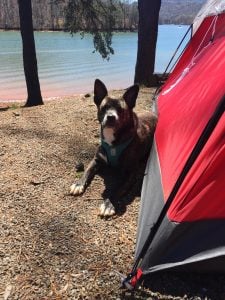
As much as you may love and trust your pets to stay close by, it’s not worth the risk of letting them roam off on their own. An alternative to always holding the other end of the leash is buying a spiral stake to put in the ground to keep the pup close by while granting him or her a little freedom to roam.
5. Be ready for the non-furry threats
When it comes to snakes, be particularly careful if you move logs or brush as most snakes get to moving when their environment is tampered with. If snakes are a high concern of yours in a particular area, consider wearing sturdy boots and gloves when moving such things.
6. Keep your distance
Most animals will scare off easily from a far distance. However, in the instance of getting a bit too close to a bear or other animal, you should brush up on what to do in the event that you are in a face-to-face situation. While these circumstances are extraordinarily rare, it is better to be prepared than to make a wrong move.
7. Wear different clothes cooking and to bed
Have you ever gone to a restaurant and can distinctly smell the food even hours after you’ve left? The same happens in the wilderness. Cooking smells cling to fabric and can attract bears, making the clothes you wore while making dinner not the best pajamas. Store your “cooking clothes” in an airtight bag or container to reduce the risk of any wildlife catching a whiff.
8. Keep it clean
Your campsite, that is. Continuously making an effort to scrub pots and pans and picking up trash throughout the day’s adventures will work wonders in making it less of a task to keep your site pest free.
9. Consider a bear proof cooler, especially for car camping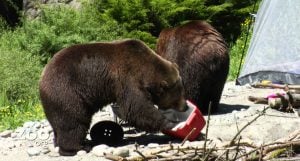
Definitely not necessary, but it is a precaution that might be suitable for some. If your cooler is on its last leg and you are looking for an upgrade, there are always certified bear tested coolers that are sure to keep your food and beverages cold and the bears locked out.
10. Know the area you are in
One of the sharpest tools you can have up against wildlife is knowledge and familiarity with the woods you will be setting up camp in. For information on the wildlife in the area, you can seek out tips from the local park ranger or wildlife official.
Getting outdoors for a camping adventure is an enjoyable, freeing experience that is almost never dangerous, but it certainly doesn’t hurt to be prepared in the event of an unlikely guest.
